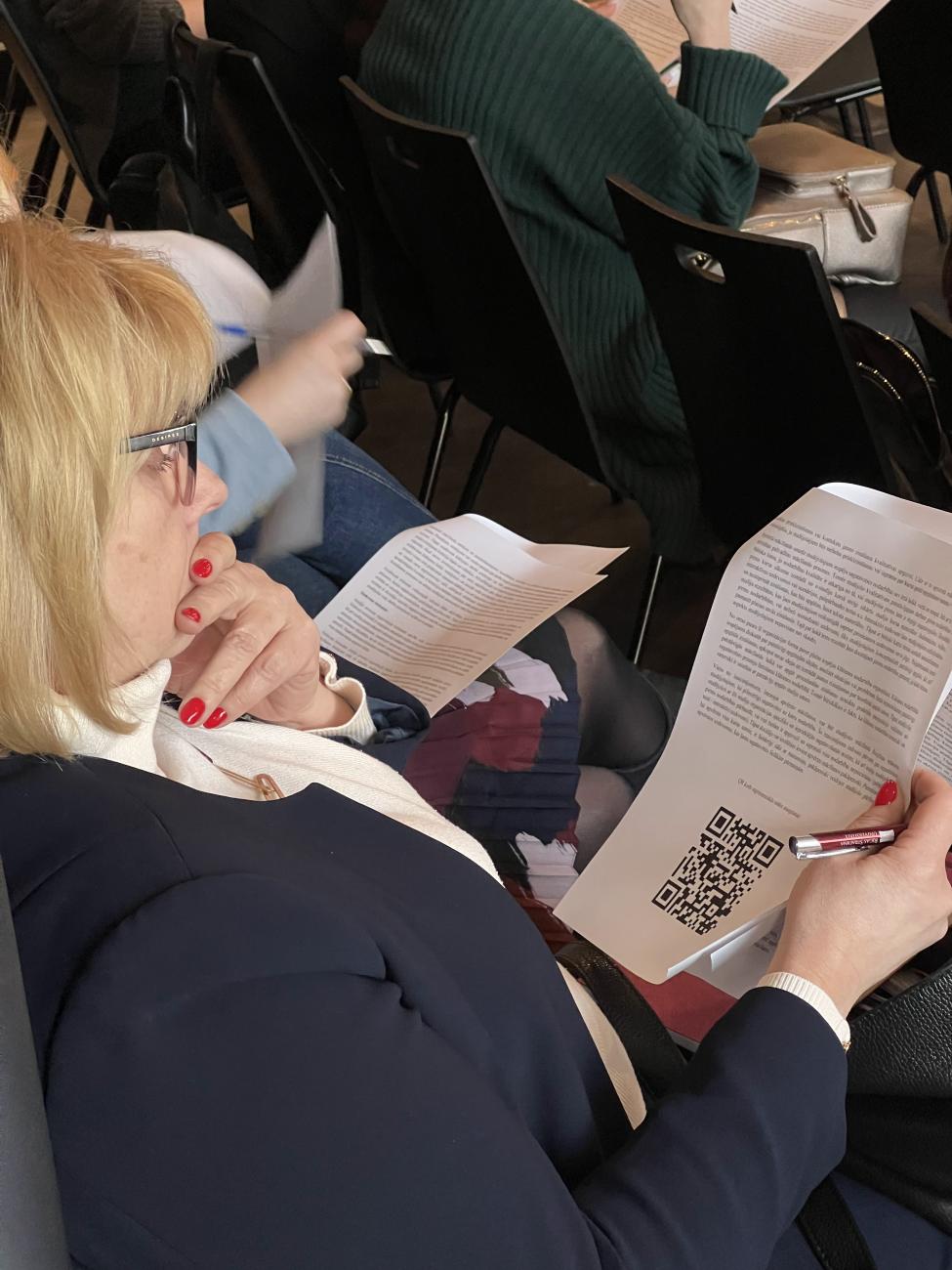RSU Among Six Universities Seeking Solutions for Learning Effectively in Digital Environment in Erasmus+ Project
This February, the Erasmus+ project Digital and Hybrid Teaching and Learning of Practical Skills in Higher Education (DITEPRACT, 2020-1-FI01-KA226-HE-092515) successfully came to an end. In the project, Rīga Stradiņš University (RSU) and five other higher education institutions responded to the challenges posed by the pandemic by exploring the opportunities for teaching in a digital environment. The universities also sought solutions for how to ensure the acquisition of learning skills in different study forms when face-to-face learning is not possible.
The idea for the project came after the first shock of the COVID-19 pandemic had passed. There was a growing realisation that higher education institutions needed to look for long-term solutions to develop the sector’s resilience to similar shocks in the future, explains Evita Grigoroviča, project team leader at the Medical Education Technology Centre (METC).
The international team included participants from Mälardalen University (Sweden), Arcada University (Finland), the Lithuanian University of Health Sciences (Lithuania), the Nursing School of Coimbra (Portugal), and Başkent University (Turkey). RSU was represented by peers from the Centre for Educational Growth (CEG) and the METC, bringing together experts in research, pedagogy, simulation-based educational approaches, and simulation technologies.
As part of the project, participants carried out a review of existing evidence in the education sector for skills acquisition in different study forms and an analysis of the experience of academic staff and pedagogical-digital competences of lecturers in the partner universities. The project partners also developed their own simulation-based curricula/models to demonstrate how a combination of different pedagogical elements can fully support the learning process in different study forms.
Nora Jansone-Ratinika, director of the CEG, emphasises that ‘By collaborating internationally, we share a wide range of experiences, exchange ideas and challenges, and see the strategic development directions for each project partner.
Together we have created theoretical and practical materials for lecturers and universities, we have heard valuable ideas from each other during visits, and we have seen the different ways in which students learn and lecturers work.
Erasmus+ projects are a great opportunity to build up a pool of experience and gain valuable cooperation partners. Although we are officially concluding the project, we are already planning future cooperation activities.’
Raimonds Strods, Study Innovation Project Manager, reveals that all partner universities share the same understanding and vision of skills acquisition in different forms of study organisation and effective learning outcomes. The key to the successful implementation of different forms of study organisation is the application of learning and teaching solutions that are tailored to the specific study course.
Integrating technology and digital environments into the study process is important for the acquisition of skills relevant to worklife, whereas the application of pedagogical solutions elevates learning to a level where students can actively participate, solve topical problems, and reflect on their experiences. The project partners agree that one of the key areas where universities can develop is to develop flexibility in the way that study programmes are organised.
The results of the DITEPRACT project show that valuable learning experiences for students are determined by the acquisition of certain learning outcomes in appropriate forms of study organisation. Thus, lecturers should be able to assess a situation and design a study course in different forms of study organisation.
At the end of the project, RSU held an educational seminar for higher education representatives where the results were presented in order to promote the exchange of experience and ideas in higher education. The event also included the validation of the CEG Study Mode Navigator that was developed in cooperation with colleagues from the education sector. This tool will help lecturers choose the most appropriate study mode and will hopefully soon be available as a digital solution.
The RSU project team would like to thank their peers and other RSU departments for their support in implementing the project.
Related news
 RSU introduces Latvia’s first master’s in Digital Strategies and AI ManagementFor Students, For RSU Employees, Internal consolidation, RSU Alumni, Development, For High School Students, For Teachers, Admissions
RSU introduces Latvia’s first master’s in Digital Strategies and AI ManagementFor Students, For RSU Employees, Internal consolidation, RSU Alumni, Development, For High School Students, For Teachers, Admissions
















